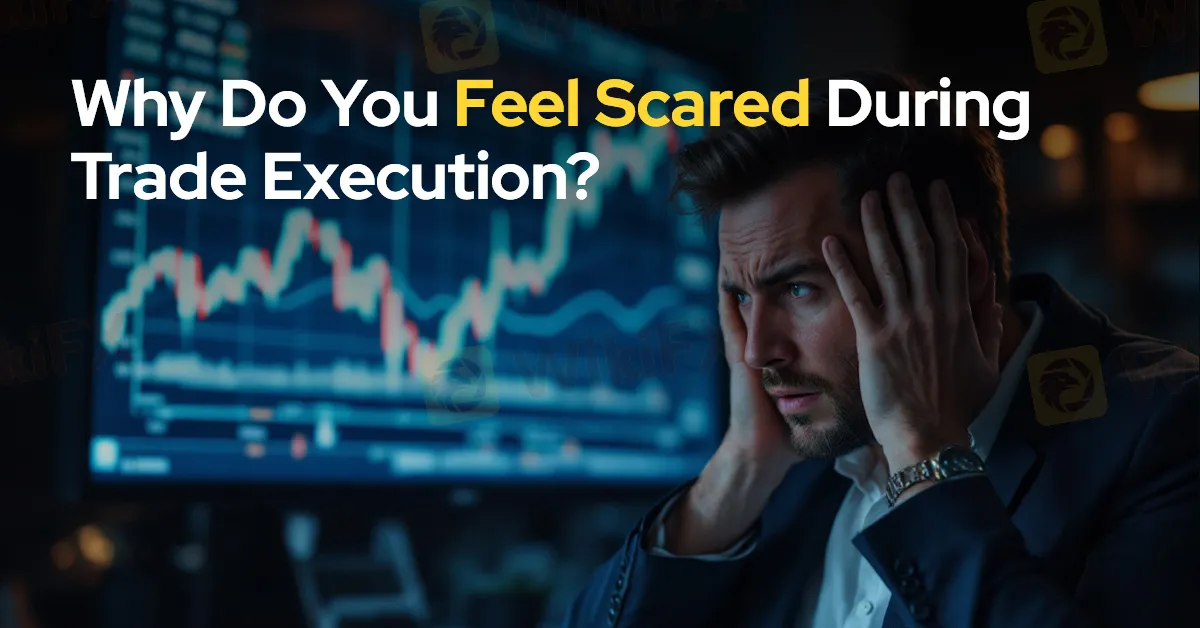Why Do You Feel Scared During Trade Execution?
Sommario:Trade execution is a pivotal moment for traders. It is when analysis turns into action, and potential profits or losses become reality. However, for many traders, this moment is accompanied by fear. Why does this happen, and how can you address it?

Trade execution is a pivotal moment for traders. It is when analysis turns into action, and potential profits or losses become reality. However, for many traders, this moment is accompanied by fear. Why does this happen, and how can you address it? Understanding the psychological, emotional, and risk management aspects of trading is essential to mastering this fear and making more confident decisions in the financial markets.

At its core, fear during trade execution stems from uncertainty. The market is unpredictable, and no analysis can guarantee outcomes. This uncertainty triggers a natural response rooted in our survival instincts: the fear of loss. For traders, this can manifest as hesitation, second-guessing, or even paralysis when its time to click that “Buy” or “Sell” button.
Additionally, past experiences play a role. Traders who have faced significant losses may develop a psychological barrier to executing trades, fearing a repeat of their mistakes. This is compounded by the pressure of potential financial loss, which can feel overwhelming, especially for those new to trading or operating with large positions relative to their account size.
Trading is an emotional endeavour. The fear of being wrong can evoke anxiety, while the hope of being right can create excitement. Unfortunately, these emotions can cloud judgement, leading traders to deviate from their strategies. Fear during execution is often linked to the potential regret of making a losing trade, which can weigh heavily on a traders mind.
For some, this fear can escalate into a cycle of avoidance. Traders may skip opportunities altogether, unable to face the emotional turmoil of executing trades. Conversely, others may overtrade, attempting to “win back” what they fear losing—a dangerous practice that often leads to greater losses.
One of the most effective ways to combat fear during trade execution is robust risk management. Fear often arises from the perceived consequences of a trade going wrong. By implementing strict risk management practices, such as setting stop-loss orders, using appropriate position sizing, and maintaining a healthy risk-to-reward ratio, traders can limit potential losses and reduce the emotional weight of each trade.
A clearly defined trading plan also helps mitigate fear. When you know exactly why you‘re entering a trade, where you’ll exit, and how much you‘re willing to risk, there’s less room for uncertainty. This structure provides a sense of control, which can alleviate the anxiety of execution.
Fear during trade execution is not inherently bad as it is a sign that you care about your financial decisions. However, it is crucial to manage this fear so it doesnt hinder your progress. Focus on continuous learning, practise discipline, and remember that no trader wins all the time.
Trading is as much a psychological battle as it is a technical one. By understanding the roots of your fear and taking steps to address it, you can transform this emotion from a hindrance into a tool for cautious and thoughtful decision-making. Above all, do not rush your trading journey. Mastery takes time, and patience is the foundation of long-term success.

WikiFX Trader
FXTM
FOREX.com
Exness
DBG Markets
CXM Trading
IC Markets Global
FXTM
FOREX.com
Exness
DBG Markets
CXM Trading
IC Markets Global
WikiFX Trader
FXTM
FOREX.com
Exness
DBG Markets
CXM Trading
IC Markets Global
FXTM
FOREX.com
Exness
DBG Markets
CXM Trading
IC Markets Global
Rate Calc
